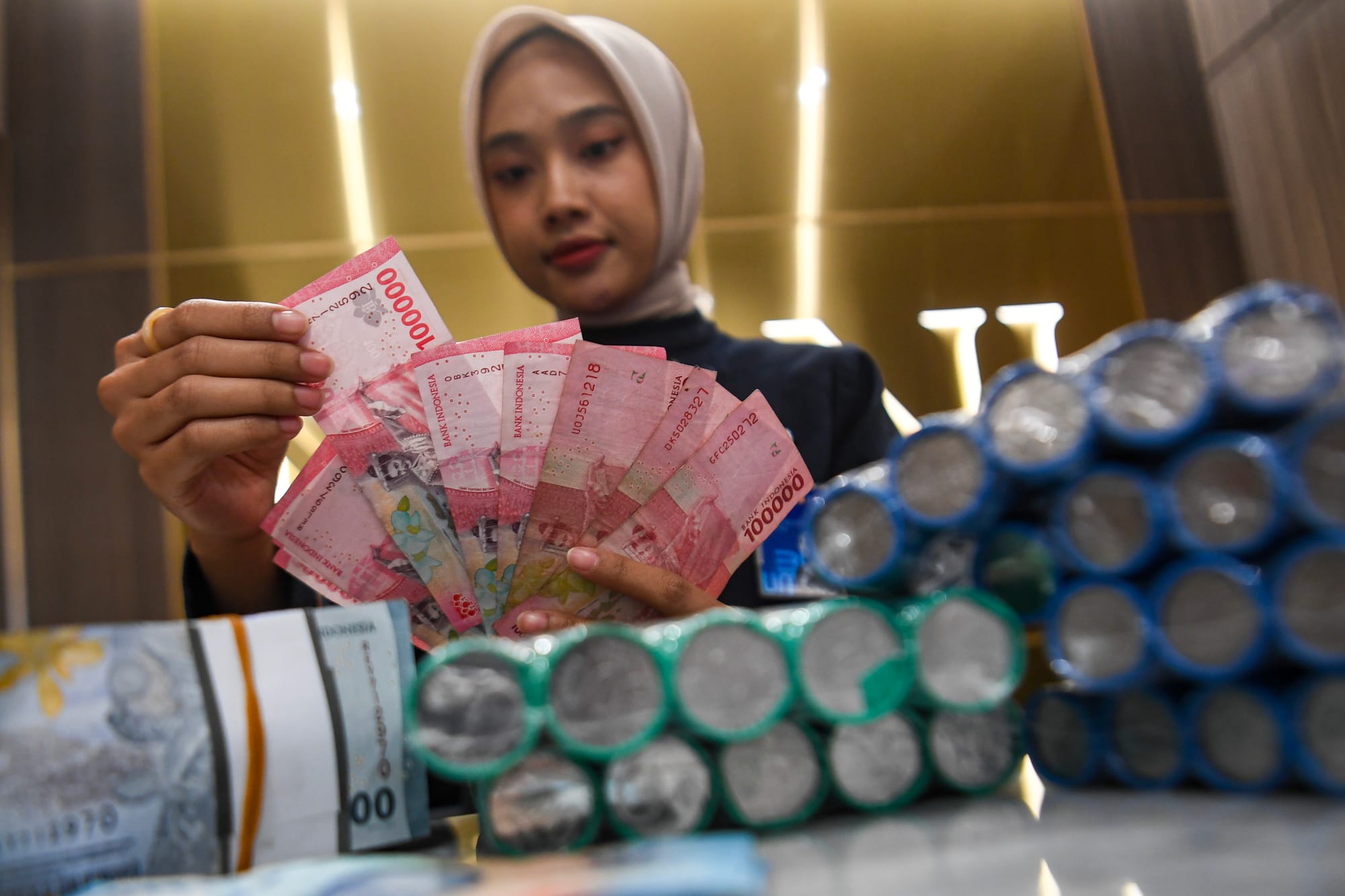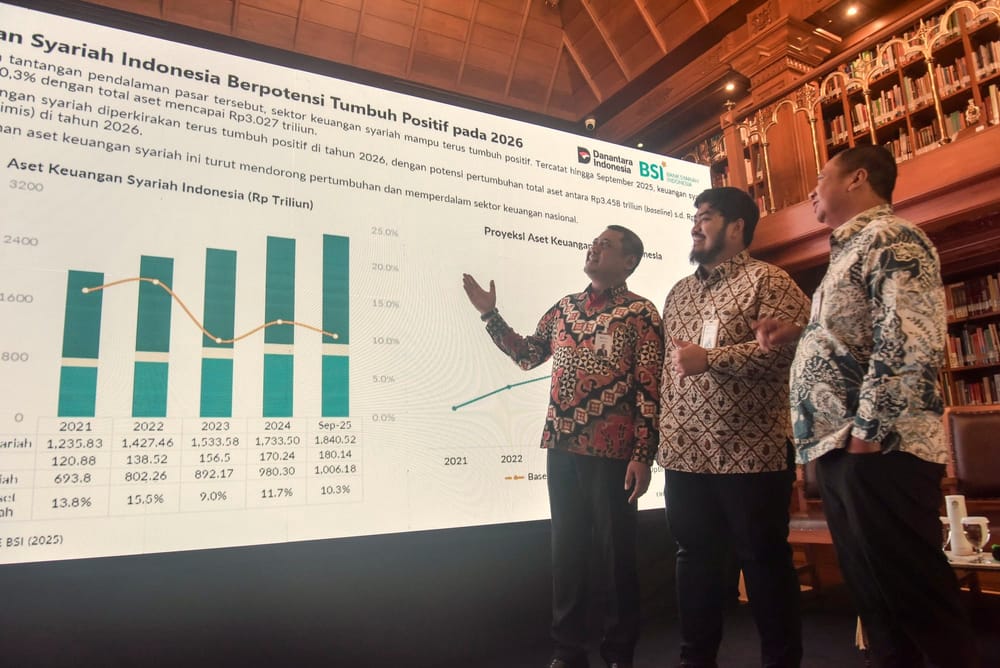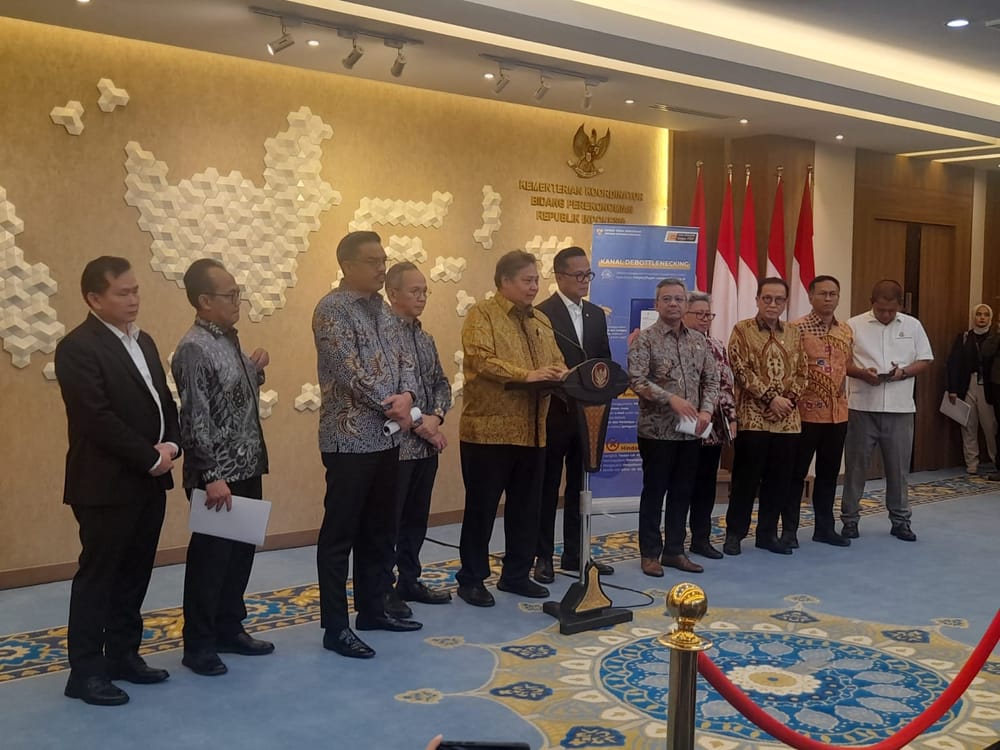The banking industry has responded positively to Bank Indonesia's (BI) plan for a macroprudential liquidity incentive (KLM) policy for banks willing to accelerate the reduction of credit interest rates as directed. However, a wait and see attitude strongly signals that in carrying out the intermediation function, the strength of credit demand determines the effectiveness of these incentives for banking performance in Q4 2025.
The direction of the policy mix was first raised at the BI Board of Governors' Meeting (RDG) Press Conference in October 2025, Wednesday (22/10/2025). BI Governor Perry Warjiyo stated that performance-based and forward-looking KLM will be effective from December 1, 2025, with a mechanism for providing incentives to banks for their commitment to channeling financing credit to certain sectors and setting financing credit interest rates in line with BI policy.
"The KLM incentives that can be received consist of a lending channel incentive of 5% DPK and an interest channel incentive of 0.5% DPK. The total incentive to be received is a maximum of 5.5% DPK, up from the incentive of 5% DPK in the previous period," said Perry.
Perry further explained that for the lending channel type, incentives are given to banks that are willing to channel credit to sectors that are government priorities, namely agriculture, industry, downstreaming, the creative economy, real estate, housing, UMKM. Meanwhile, for the interest channel type, incentives are given to banks that are willing to accelerate interest rate cuts in accordance with BI's direction.
"The amount of incentive received takes into account the adjustment factor for the realization of financing credit compared to the commitment of the previous period, and is based on the speed at which banks adjust new credit interest rates to the BI benchmark interest rate," he said.
Complementing Perry's explanation, BI Deputy Governor Judha Agung revealed that the KLM incentive is inseparable from BI's decision to reduce the BI Rate by 6 times 0.25 bps or 150 bps between September 2024 and September 2025 from 6.25% to 4.75%. However, at the same time, the deposit interest rate only fell 29 bps from 4.81% to 4.52%, while the credit interest rate only fell 15 bps from 9.20% to 9.05% as of September 2025.
"In the past, BI looked at the realization first, then we gave the incentive. Now, banks that state their commitment will immediately be given an incentive. Of course, if the commitment is not carried out, there will be penalties. The faster, the bigger the incentive, and the higher the liquidity given," said Judha.
Without hesitation, Perry chimed in on Judha's explanation by adding a pantun, "Ikan sepat ikan gabus, semakin cepat semakin bagus."
Wait and see
Banking industry players welcomed the announcement positively, considering that the previous monetary policy direction had provided more than enough impetus for banks to accelerate lending. However, the welcome was followed by a wait and see approach, mainly because there are no official regulations directing banks to do so.
Executive Vice President Corporate Communication & Social Responsibility of Bank Central Asia (BCA), Hera F. Haryn, stated that in principle, BCA always supports BI's policies as the relevant authority regarding KLM and various other policy mixes expected to encourage national economic growth.
"BCA will observe the incentives, coordinate with authorities and regulators, and await the issuance of related technical regulations. However, in general, credit growth will align with economic growth. For the record, as of September 2025, BCA's disbursed credit grew by 7.6% YoY to Rp944 trillion," Hera explained in a written message received by SUAR on Thursday (29/10/2025).
Sharing Hera's views, Corporate Secretary of Bank Mandiri, Muhammad Ashidiq Iswara, stated that they view the Macroprudential Liquidity Incentive (KLM) policy issued by Bank Indonesia as a positive step in improving policy transmission and strengthening the banking intermediation function, thus positively impacting economic growth.
"This policy is in line with Bank Mandiri's commitment to continue supporting national economic growth through financing to productive and value-added sectors for the community. We will continue to adjust our fund management strategy in line with monetary policy, while upholding prudence and commitment to sustainable stability and economic growth," Iswara explained in a written communication.
Strength of demand
On the one hand, the positive response of banks to the plan to provide KLM incentives reflects the banks' confidence in the acceleration of credit demand in Q4 2025, thanks to the stimulus circulating in the system, as well as the acceleration of year-end spending. On the other hand, the response sends a strong signal that in carrying out the intermediation function, the strength of demand determines the effectiveness of interest rate cuts, not the cuts themselves.
Read also:

Economic and Political Analyst at Laboratorium Indonesia 2045 (LAB45), Nadia Restu Utami, explained that the effectiveness of KLM is highly dependent on macroeconomic conditions, especially the strength of domestic demand. She emphasized that even if the incentives are large, if they are disbursed amidst sluggish household consumption, declining purchasing power, and a labor market that has not fully recovered, easing credit may not necessarily drive growth.
"Credit demand depends on income expectations and public confidence in the economic outlook. When economic conditions are sluggish, households hold back spending and businesses postpone expansion, so credit disbursement tends to stagnate even though liquidity is abundant," said Nadia when contacted by SUAR on Friday (30/10/2025).
Theoretically, according to Nadia, this phenomenon is in line with the concept of credit crunch and the demand-following endogenous growth theory. New investment and consumption will grow if there is effective demand in the market. In economic uncertainty, banks become cautious because the risk of default increases, while businesses are reluctant to borrow. As a result, no matter how BI provides incentives and eases monetary policy, the credit transmission channel remains blocked.
"Therefore, before turning on the expansive monetary engine, the government needs to ensure that the foundation of aggregate demand is strong enough. This means accelerating productive fiscal spending, expanding employment, and strengthening people's purchasing power. That way, BI's liquidity incentives can work more effectively because there is a real need for financing," Nadia concluded.







